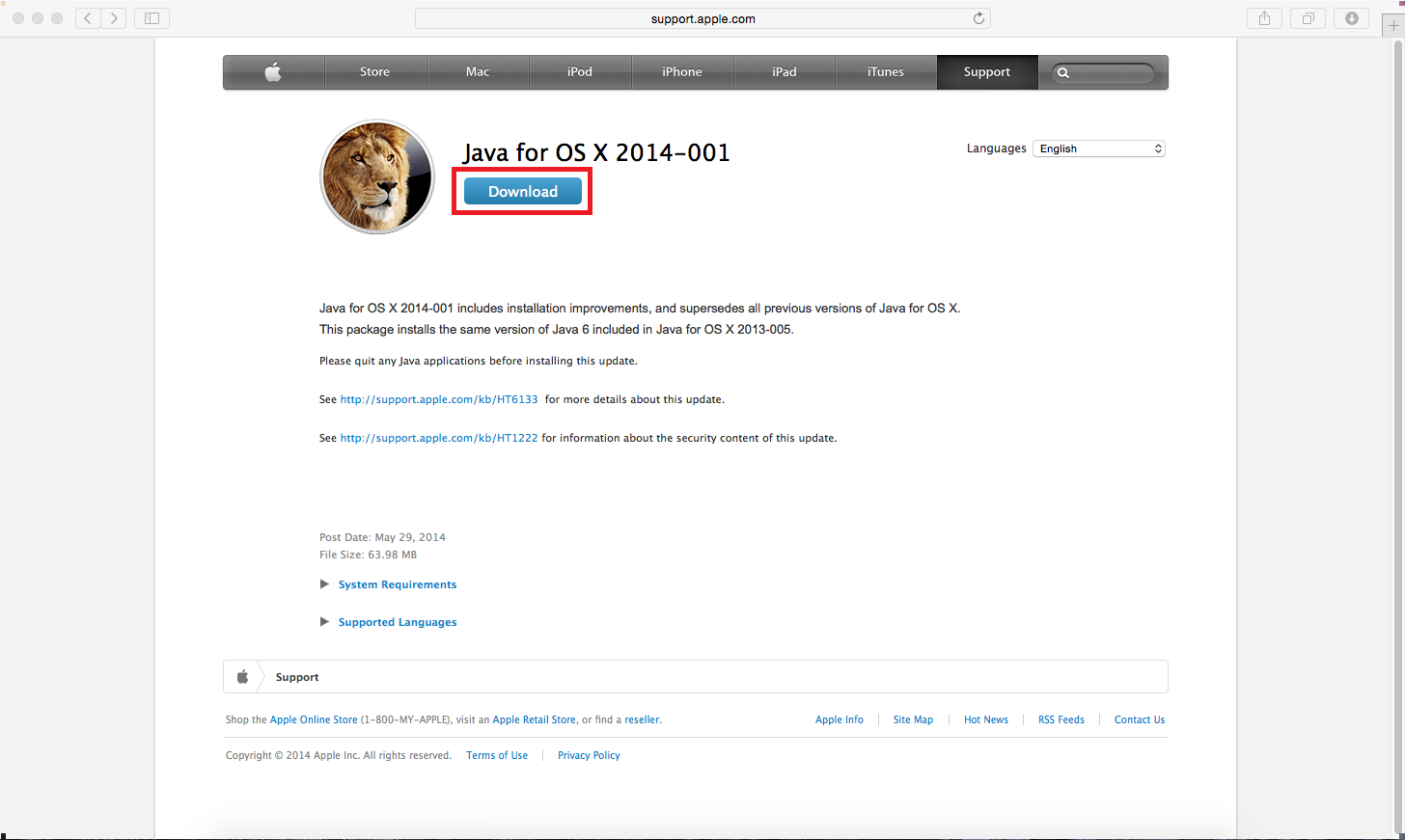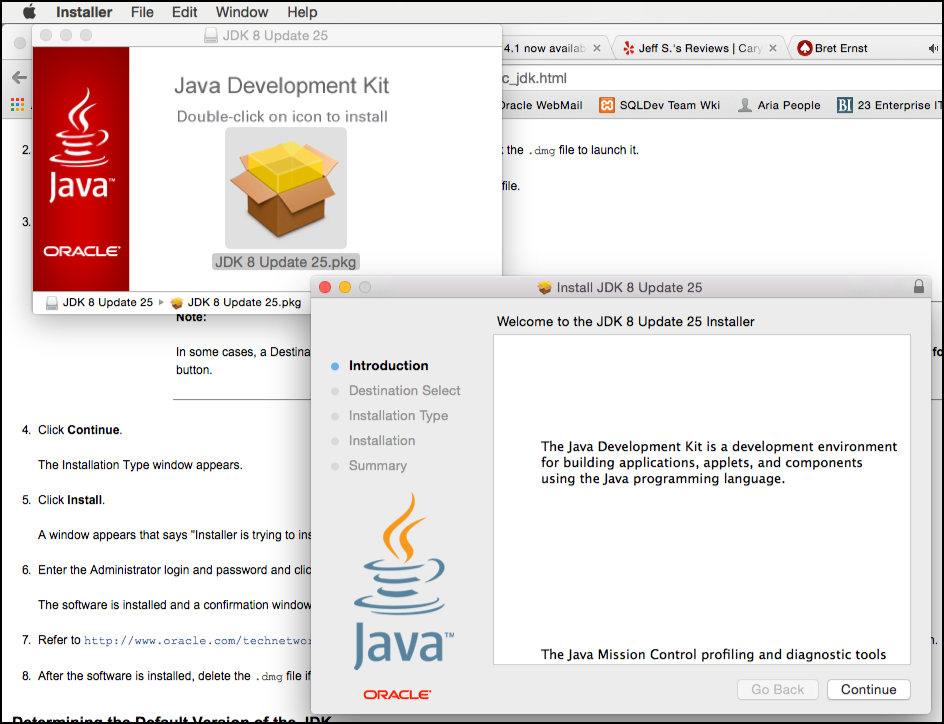Java Runtime 6 For Mac

Java runtime environment 1.6.0 free download. Hibernate Hibernate is an Object/Relational Mapper tool. It's very popular among Java applications and impleme.
Patch Name javaforosx-2017-001.dmg Patch Description Java for OS X 2017-001 Bulletin Id MAC-008 Bulletin Title Java for Mac OS X 10.6 Update 15 Severity Unrated Location Path Bulletin Summary Java for Mac OS X 10.6 Update 14 delivers improved security, reliability, and compatibility by updating Java SE 6 to 1.6.0_43.
Oracle's Java version 7u25 and below have been disabled by Apple on OS X. Updating to the latest release will allow Java to be run on Mac OS X. » » » » » » » » » » » » » » » » » » » » » » See information about.
Yes, see the instructions on the Apple website. If you have JDK 7 or later versions installed on your system and you want to restore Apple Java 6, then those JDK versions need to be uninstalled first. See the instructions to.
In order to get the audience’s attention, you may need to turn their eyes away from your PowerPoint slides. The best way to do this is to black out the screen. Just press the b key on your keyboard and the screen goes black. Now you can answer questions, go off on a tangent, tell a story, or whatever. If I click 'Use Slide Show' then it functions a little better, but (a) this button sometimes does not work, displaying a black screen instead; (b) takes a good 10 seconds to switch even when it does work; and (c) renders at a terrible resolution on the projector, much worse than what the projector is capable of, or what is used with normal display mirroring. On the opened PowerPoint Options box, from the left pane, click to select the Advanced category. From the right pane, under the Slide Show section, uncheck the End with black slide checkbox. 
Operating system requirements: For Java 7 and later versions, you will need an Intel-based Mac running Mac OS X version 10.7.3 (Lion) and above. Installing Java on a Mac is performed on a system wide basis, for all users, and administrator privileges are required. Java can not be installed on a per-user basis. Browser requirements: A 64-bit browser (Safari, for example) is required to run Oracle Java on Mac. For Java versions 6 and below, Apple supplies their own version of Java. For Mac OS X 10.6 and below, use the feature (available on the Apple menu) to check that you have the most up-to-date version of Java 6 for your Mac.
For issues related to Apple Java 6 on Mac, contact Apple Support. Oracle and Java.com only support Java 7 and later, and only on 64 bit systems. Mac OS X and Apple Java 6 End of Life Apple has posted notice that Mac OS X 10.11 (El Capitan) will be the last OS X release that supports Java 6, and as such, recommends developers whose applications depend on Java 6 to migrate their apps to a newer Java version provided by Oracle. » (apple.com). Chrome browser versions 42 and above. Starting with Chrome version 42, Chrome has disabled the standard way in which browsers support plugins. You can download Java from java.com.
Mac OS X 10.6 and below: Apple's Java comes pre-installed with your Mac OS. Mac OS X 10.7 (Lion) and above: Java is not pre-installed with Mac OS X versions 10.7 and above. Generic printer drivers for mac sierra. To get the latest Java from Oracle, you will need Mac OS X 10.7.3 and above. If you have Java 7 or later versions, you will see a Java icon under System Preferences. Java versions 6 and below are listed in the Java Preferences.app located in the Applications > Utilities folder on your Mac. Mac OS X 10.7.3 and above: Under System Preferences click on the Java icon to access the Java Control Panel which will list your Java version. If you do not see a Java icon under System Preferences, Java 7 or later versions is not installed.
When you install Oracle Java on your Mac (Lion and above), Java will be enabled by default. If you are running a Java application in the browser, you will need to also check that. For earlier versions of Java, check the Apple Support site. See See See For Java versions 6 and below, Apple supplies their own version of Java.
Use the feature (available on the Apple menu) to check that you have the most up-to-date version of Apple's Java for your Mac. Users of Lion Mac OS X 10.7.1 and 10.7.2 should upgrade to 10.7.3 or later versions, so you can get the latest Java version from Oracle. Oracle highly discourages users from using older versions of Java. Installing old and supported versions of Java on your system presents a serious security risk. Upgrading to the latest version of Java ensures that Java applications will run with the most up-to-date security and performance improvements on your system.
You can confirm that you have the latest version on the. If installing an older version of Java is absolutely required, you must first uninstall the current version. See the instructions on the. Apple disables the Java plug-in and Webstart applications when the Java update is done using Software Update. Also, if the Java plug-in detects that no applets have been run for an extended period of time it will again disable the Java plug-in. The Java Runtime depends on the availability of an Application programming interface (API).

Some of the API were added in Mac OS X 10.7.3. Apple has no plans to make those API available on older versions of the Mac OS. See During an auto-update, Mac OS X 10.9 (Mavericks) users might see the installation stall.